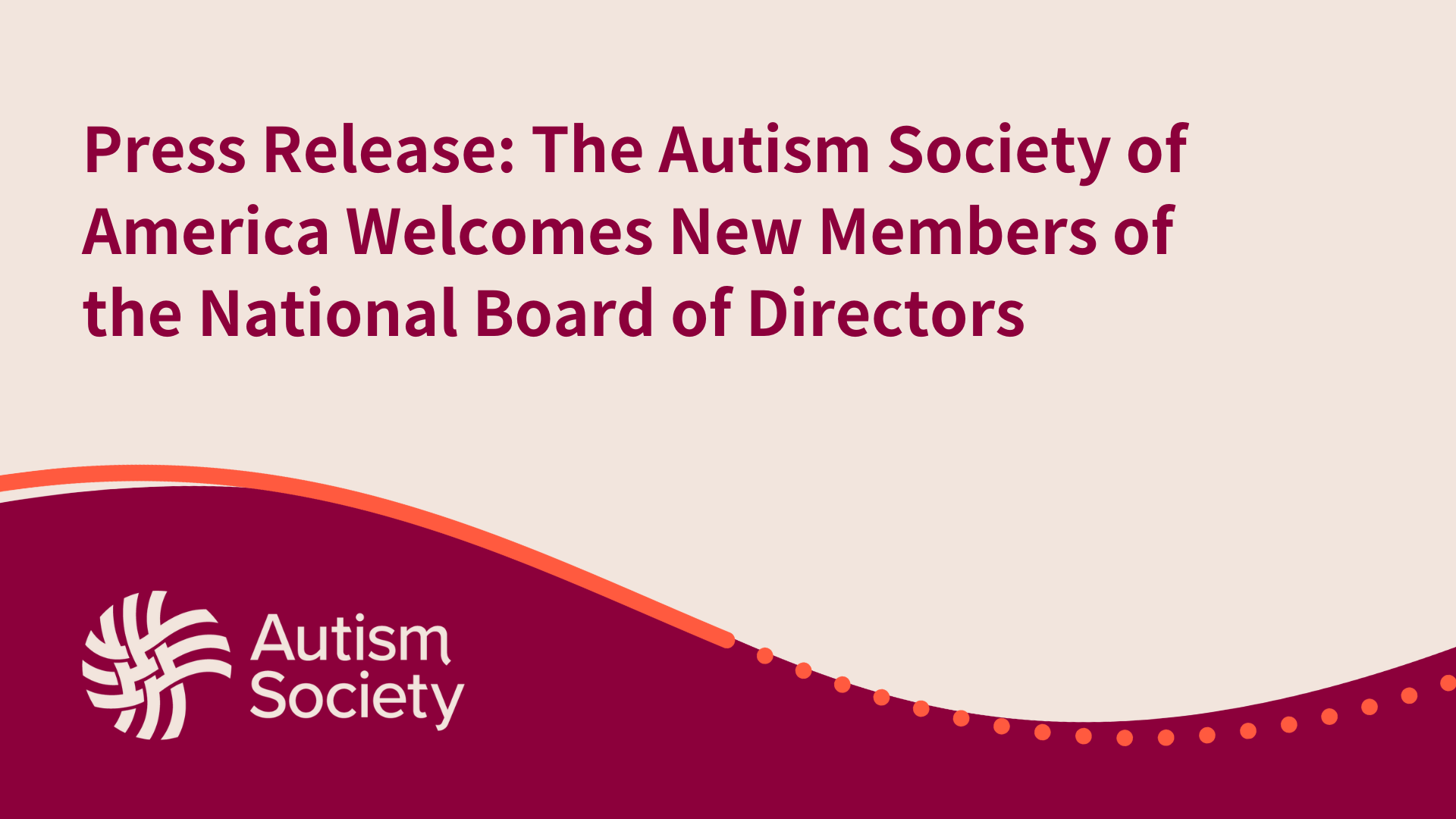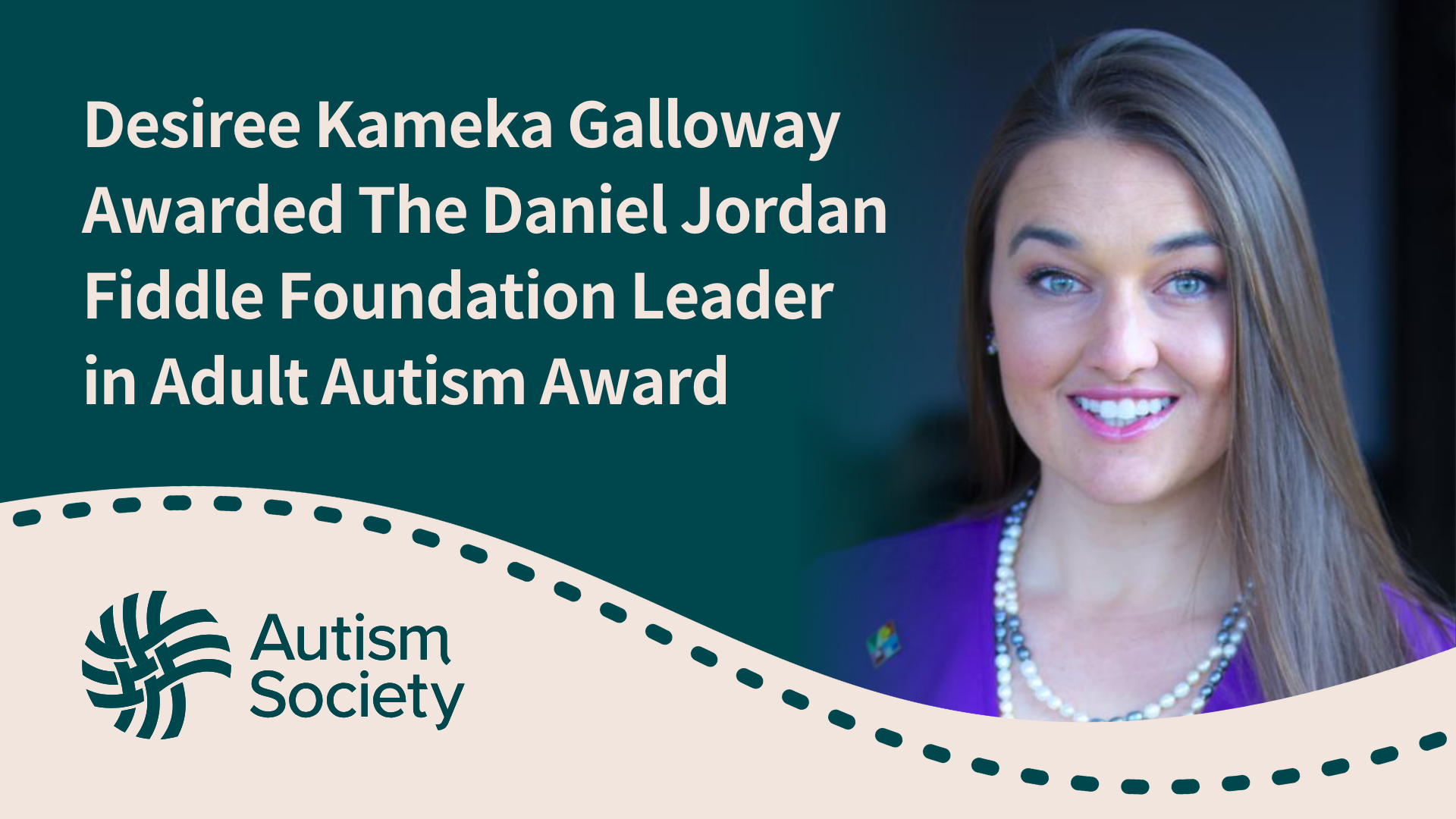
In this issue of Capitol Connection, find results of the midterm elections and an update on potential Lame Duck actions. In addition, read about new letters from the U.S. Department of Education and valuable research for state advocates. Please use the Autism Society’s Action Center to urge your Members of Congress to support legislation for the Autism community.
U.S. Midterm Election
The outcome of the November 8 midterm elections and which party will hold the majority in both chambers are not yet clear with ballots still being counted in several states. As we’re writing this edition of Capitol Connection, the Senate was 49-50 with Democrats retaining the majority and one outstanding race in Georgia. Georgia’s election is moving to a runoff set for December 6th.
In the House, Republicans are projected to regain the majority. As it stands now, Republicans have won 217 seats and Democrats have won 209 seats with several seats still unaccounted for. Regardless of the outcome, both chambers will have a very slim majority, making progress on legislation difficult without bipartisan support.
Why does it matter which party holds the majority? The party that holds the majority, i.e. the most number of seats in a chamber, holds significant power over legislative priorities. The majority party provides leadership on all of the committees. Committee chairs have the power to decide what hearings are held, what bills are considered, and the rules of the chamber. The majority also has more authority over how programs will be funded. The Autism Society will continue to monitor the election outcome and changes in leadership that might impact its legislative priorities.
Lame Duck Session
Congress returned for a special Lame Duck session of Congress on November 15 and newly-elected members underwent an orientation. It is unclear what will be achieved in the special session. The Autism Society is strongly advocating for the House and Senate to come to an agreement on the 12 annual appropriations bills that have increases for programs important to people with Autism and other disabilities. The Autism Society will also continue to urge Congress to act on bills to increase the SSI savings limit, increase funding for Medicaid home and community-based services, and ban electric shock devices still being used at the Judge Rottenberg Center in Massachusetts. Bills to reauthorize Kevin & Avonte’s Law and Assistive Technology Act may get final approval (see also the Nov. 3rd edition of Capitol Connection). Use the Action Center to educate Members of Congress on these and other legislative issues important to you.
Mental Health Justice Act
Prior to Congress recessing for the election, the House passed the Mental Health Justice Act of 2022 (HR 8542). This bill, introduced by Rep. Katie Porter (D-CA), authorizes $250 million in funding and technical assistance to State and local governments to hire, employ, train, and dispatch mental health professionals to respond in lieu of law enforcement officers to situations involving a person experiencing a mental health or substance use disorder crisis. The President issued a statement of support for the bill. Senator Elizabeth Warren (D-MA) introduced a companion bill (S. 515) in March of 2021. It is unclear if this bill will be passed before the end of Congress. The Autism Society is monitoring a number of bills aimed to increase mental and behavioral health and averting interactions with law enforcement.
National Family Caregiver Month
In honor of National Family Caregivers Month (November), the White House issued a Proclamation. This month offers an opportunity to raise awareness of caregiving issues, educate communities, and increase support for families. The Administration recently released the 2022 National Strategy to Support Family Caregivers, with numerous recommendations for increasing support to individuals and families within existing federal and state authorities. The Administration is seeking comments on the recommendations, which are due on November 30th. The Autism Society will be sending its drafted comments to affiliate leaders to use to submit their own.
Education
NAEP
Results from the latest National Assessment of Educational Progress (NAEP) show a concerning but expected decline in scores following the Covid-19 pandemic. The director of the Institute for Education Science analyzed the results and found that between one-quarter and over one-third of America’s students are below NAEP “basic” level in core reading and math skills. K-12 Dive provided data on how students with disabilities scored compared to their non-disabled peers. They point out that students with disabilities perform on average 40 points lower, but have seen growth in some states including Alabama and California. This data shows the importance of advocating for Covid-19 relief funding to be used to improve students well being and provide chances for remedial work through tutoring or other avenues.
Evaluations
In a letter to State and Local Special Education and Head Start Directors, the U.S. Department of Education raises concerns about students waiting too long for evaluations. The letter reminds districts of their legal obligation under the Individuals with Disabilities Education Act (IDEA) to provide an evaluation within 60 days of parental consent and to conduct development screenings within 45 days of enrollment at Head Start programs. It also reminds districts of parental rights to file complaints under IDEA. The pandemic understandably created delays in evaluations but is of utmost importance that Districts do their best to provide early identification.
Military and Other Mobile Students
Recently, the U.S. Department of Education released a Letter to State Directors of Special Education with resources, guidance, and important principles to help states, school districts, families and others ensure the rights of highly-mobile children with disabilities.
The purpose of this letter is to address concerns expressed by stakeholders regarding the unique educational needs of highly mobile children with disabilities under the Individuals with Disabilities Education Act (IDEA), provide an updated list of resources to support them, and seek your assistance in improving the educational stability of, and post-school outcomes for, these highly mobile children.
State Advocacy
Case for Inclusion Report
ANCOR and the United Cerebral Palsy released the Case for Inclusion 2022 which analyzes the state of home and community-based services for the IDD community and proposes policy changes. The report focuses on the crisis of the direct care provided shortage and found that vacancy rates for full-time direct support positions increased by 45 percent. It also found that there were 589,940 people on states’ waiting lists for HCBS nationally and about 4 in 5 of those waiting were concentrated in just five states. These five states include Texas, Ohio, Louisiana, Florida, and Illinois (see page 15). When advocating at the state level, this report can be referenced for talking points to increase funding.
Congressional Research Report of LTSS and Medicaid
The Congressional Research Service, a government agency that provides research for policymakers, released a report on what law allows states to cover Long Term Services and Support under Medicaid. In general, Medicaid provides states with two broad authorities, which either cover certain LTSS as a benefit under the Medicaid state plan or cover HCBS through a waiver program that permits states to disregard certain Medicaid requirements in the provision of these services, subject to approval by the Secretary of Health and Human Services (HHS). Over time, Congress has provided state Medicaid programs with additional state plan authority and federal payment incentives to expand their HCBS offerings. The report also goes into detail about the different options and services states can offer. On pages 33-34, see a chart detailing which states have taken up these options. This can be used to advocate for states to implement options leading to additional funding for services and supports.
Passing of Lois Curtis
The Autism Society issued a statement last week acknowledging the passing of Lois Curtis. Lois was the lead plaintiff in the 1999 U.S. Supreme Court decision, Olmstead v. L.C., which decided that unjustified segregation of people with disabilities is a form of unlawful discrimination under the Americans with Disabilities Act (ADA). The Olmstead ruling led to numerous states making system-wide changes to increase opportunities for people with disabilities to live self-determined lives.
The statement also points out that there continues to be great inequities in home and community-based services due to a lack of funding. It urges the U.S. Congress to honor Lois Curtis’ legacy by increasing funding for Medicaid home and community-based services such as the Better Care Better Jobs Act. State legislatures should use existing flexibilities in Medicaid to increase their share of funding and rebalance their systems to support more individuals and families in the community.
Disability Policy Seminar
Save the dates of March 20-22 for the annual Disability Policy Seminar in Washington, DC at the Renaissance Hotel. Look for information about registration and the program agenda in future editions of Capitol Connection.
Share:




